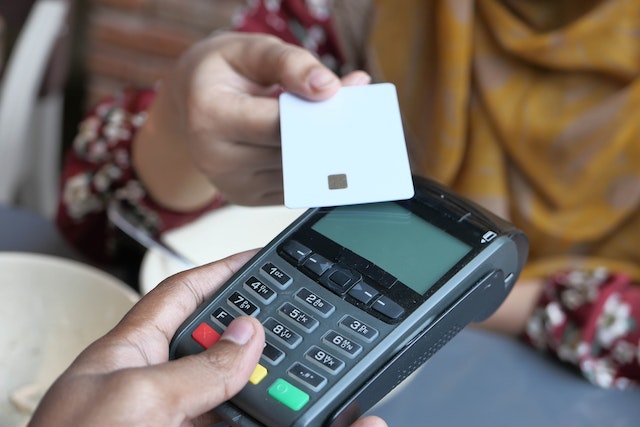What Is the Minimum Credit Score for Mortgage Approval in Canada?
As of 2022, homebuyers need a credit score of at least 680 to get approved for a mortgage in Canada.
Borrowers with a lower credit score can still qualify for a home loan, although they won’t get access to the best mortgage lenders and the lowest rates.
In the article below, we will take a look at how credit score affects the likelihood of getting approved for a mortgage, the minimum credit score you need to get favourable rates as well as the alternatives available to bad credit borrowers.
What Credit Score Do I Need to Buy a House?
You typically need a credit score of at least 680 to qualify for a mortgage.
This is the minimum credit rating set by the Canadian Mortgage and Housing Corporation (CMHC)—the biggest mortgage insurer in the country—and is the minimum credit score required by most banks and lenders.
This doesn’t mean that a loan applicant with a credit rating between 620 and 670 won’t get approved for a mortgage. Each mortgage lender has their own set of lending criteria. What’s more, credit is not the only thing lenders consider—for instance, a loan provider might grant a loan to an applicant with slightly lower than average credit rather than a homebuyer with a good credit score but a lower income and lots of debt.
That said, the higher your credit score the more likely you are to
- Get approved for a mortgage
- Qualify for favourable interest rates
- Get more flexibility when it comes to mortgage terms and conditions
How Your Credit Score Affects Your Mortgage
Even though your credit score is not the only factor mortgage lenders look at, it is one of the more important metrics of financial health—it shows lenders how well you manage your finances and thus how likely you are to default on the loan.
Thus, borrowers with a good or excellent credit score are seen as low-risk and are therefore offered better interest rates and conditions. A lower interest rate can save you thousands over the life of the mortgage, especially when it comes to long-term loans like mortgages.
On the other hand, house buyers who have difficulties managing debt and don’t make timely payments are considered high-risk borrowers. Since banks don’t want to lose money on the loan, they offer a much higher interest rate to compensate for the risk involved. Higher interest rates translate to higher mortgage repayments and increase the overall cost of the loan over time.
Here is a rundown of how different credit scores can impact the mortgage approval process.
| 760+ | You have excellent credit and are likely to get the best interest rates on the market |
| 725–759 | Credit over 725 is deemed “very good” and should get you easy approvals and solid rates |
| 660–724 | This is considered a “good” credit score and will get you approved for a mortgage (if you meet other criteria as well). Still, you’ll get less favourable rates than borrowers with an excellent credit score |
| 560–660 | Although you are likely to qualify for a mortgage even with a traditional bank (provided your credit is 620+), your credit score is still too low to get favourable mortgage rates and terms |
| 300–560 | This credit score falls in the “poor” range. It means that you are seen as a high-risk borrower and may have problems getting approved for a loan |
How is your credit score calculated?
To be able to improve your credit score, you need to know what factors credit bureaus use to calculate your credit rating.
- Payment history—How often you pay your credit card bills and other debt repayments
- Credit utilization ratio shows how much of your available credit you are using. Equifax and TransUnion recommended a credit utilization ratio of under 35%
- Credit history—The longer you’ve had your credit accounts, the higher your score will be
- New credit requests—Every time you apply for new loans or credit cards, your credit score takes a hit
- Credit mix—Mixing up different types of credit such as a line of credit and credit cards boosts your overall creditworthiness
You might not know how high your credit score is—48% of Canadians have never even ordered a credit report—but you need to check it before you even consider buying a house in Canada.
You can get a copy of your credit report from Equifax Canada or TransUnion although you might have to pay a fee. Alternatively, you could check your credit score through your banking apps or use the services of Borowell and Credit Karma, both of which provide free credit reports.
What other factors do lenders consider when you apply for a mortgage?
Other factors lenders take a look at include:
- Debt servicing ratio: Both Gross Debt Servicing (GDS) and Total Debt Servicing (TDS) indicate whether you can pay the mortgage every month. GDS looks at the ratio between your gross income and your monthly housing costs (mortgage payments, property taxes, utility bills, condo fees—if applicable), whereas TDS measures how much your debt payments take up from your monthly income. Ideally, GDS and TDS need to be under 35% and 42%, respectively.
- The amount you want to borrow: Lenders are likely to look more carefully at large mortgages—the bigger the amount, the more of a risk you pose to a lender.
- Employment: You need job stability to get approved for a mortgage. For instance, self-employed individuals and freelancers should show 2 years of income history to get approved even if they have high income and good credit scores. That’s why switching jobs while applying for a mortgage is not advisable—if you are forced to change employers or you get an offer that is hard to pass up, delay the mortgage application process until you get settled in your new job.
- Debt management: Your mortgage provider will pull a copy of your credit report to take a look at your payment record. Any history of debt and payment issues is a red flag for lenders, even if you have a credit score of 660+.
- Debt load: Your lender will factor in your current credit card debt as well as other financial liabilities.
- Stress test results: Passing the mortgage stress test will show lenders that you are able to make monthly repayments even if interest rates increase.
Can I Get a Mortgage with Bad Credit?
House prices in Canada may be declining for the first time in two decades, but interest rates are still pretty high, so getting approved for a mortgage might be a serious challenge if you have poor credit.
Luckily, there are options available for home buyers with a credit score under 660.
- Find the right mortgage lender
It’s highly unlikely that any of Canada’s big banks will approve you for a mortgage with bad credit. Instead, try working with alternative mortgage providers such as
- B-lenders
- Credit unions
- Subprime lenders
- Private mortgage lenders
These financial institutions have a less stringent approval process than A-lenders, but offer higher interest rates.
- Make a bigger down payment
A down payment higher than 20% of the purchase price will lower the amount you need to borrow, increase your equity in the property and is also likely to reduce your interest rate. You’ll also avoid the mortgage insurance charge that can go up to 4% of your loan.
Not everyone has enough saved up to make a sizable contribution to the purchase price, forcing many people to resort to personal or payday loans for a bigger down payment. Getting a loan for a down payment is not always the best idea, especially if you’re already struggling with debt.
- Get a co-signer for the loan
A co-signer is a person who promises the bank that they will cover your mortgage repayment if you’re not able to. This option improves your chances of getting approved since the lender will consider the cosigner’s credit score, income and employment status in addition to your own.
Getting a co-signer will only work though if the other person has a credit score over 680, a steady income and little to no debt. They should be someone you trust as getting a co-signer removed from a mortgage is a complicated process.
- Improve your credit score
A final option is to delay the mortgage application and subsequent house-hunting process until you get your finances in order and improve your credit score.
Bottom Line
A credit score may not be the only deciding factor in terms of getting approved for a mortgage, but it is a very important one.
A higher credit translates to low rates, more flexibility and more favourable terms, so try and boost your credit score and get it to 680 or higher to get a better deal on your mortgage.
FAQ
Most lenders will consider you a risky borrower, so the chances of getting approved are slim. You could try a private or subprime lender who is willing to work with bad credit applicants, although you will get a very high interest rate. If your credit rating is lower than 620 or 560, it’s better to try and improve your credit score and apply for a loan later on when you have fair or good credit.
As stated above, your credit score is not the only aspect lenders consider. They will also look at your income, employment and debt servicing ratios to decide if you qualify for a loan and how much of a mortgage you can afford.
A mortgage pre-approval is the best and fastest way to check how much mortgage you can afford and what interest rate you qualify for. The bad news is that lenders will do a hard inquiry on your credit report which will slightly lower your credit score.
If you are a newcomer to the country you probably won’t have any credit history. In this case, you could still qualify for a mortgage as several banks in Canada, such as TD, Scotiabank and CIBC have special loans for immigrants and international students. You could also apply for a secured credit card—these can build credit faster and in time help you get a better mortgage deal.










